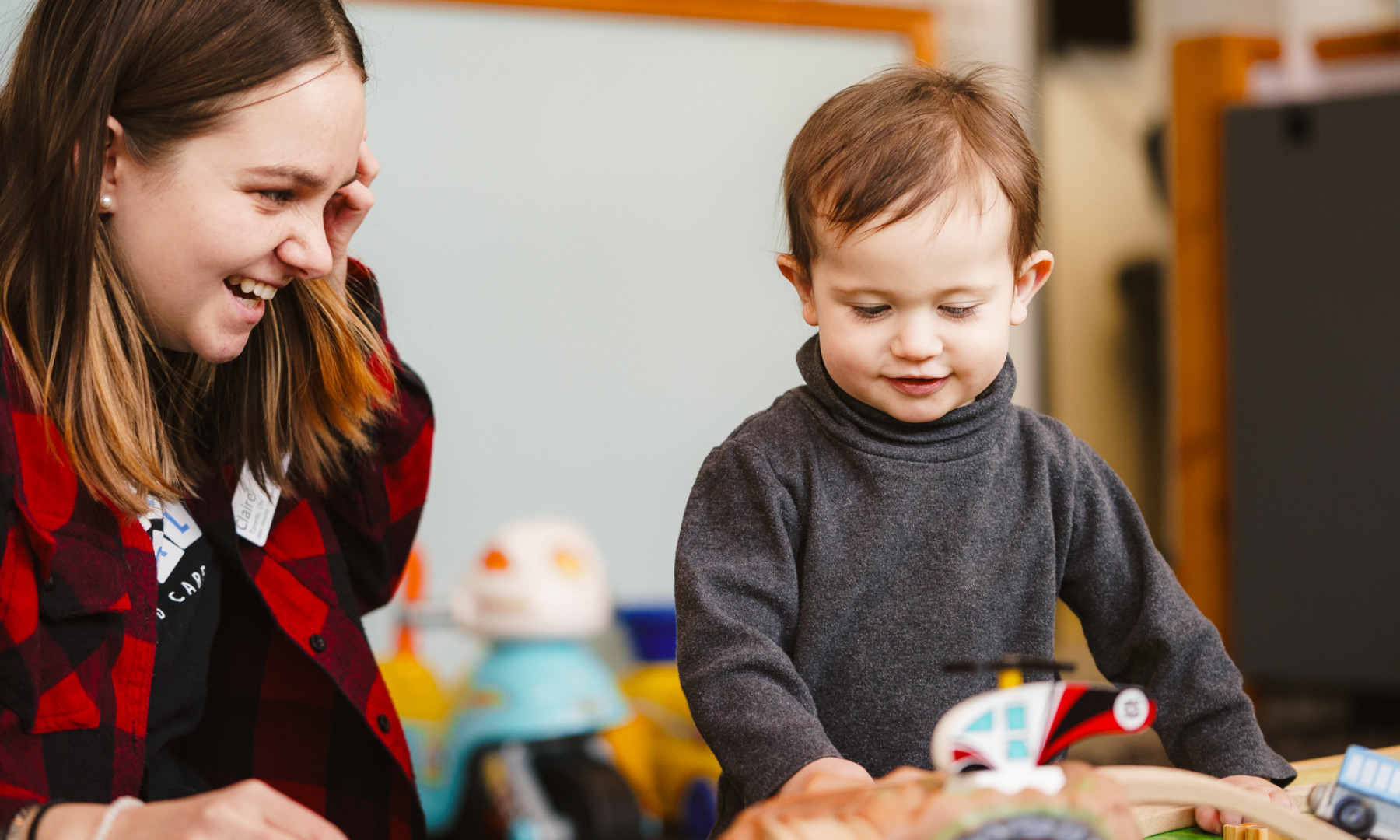The Duty of Day Care in Promoting Your Kid's Cognitive and emotional Skills With Organized Play and
The function of daycare in supporting a young child's emotional and cognitive development is usually underestimated, yet it offers as an essential atmosphere for structured play and educational tasks. Through carefully made experiences and interactions, caregivers assist in necessary skills such as psychological understanding and problem-solving.
Value of Structured Play
Structured play is an essential element of young child growth, as it offers a structure via which children can take part in purposeful communications and finding out experiences. This type of play is deliberately developed to promote different developmental skills, such as cognitive, social, and physical capacities. By taking part in structured tasks, young children discover to follow policies, take turns, and accept peers, every one of which are important for their interpersonal abilities.

Moreover, structured play often includes educational components, such as counting, shade acknowledgment, and language advancement, perfectly incorporating discovering into enjoyable tasks. This method not just catches toddlers' focus however additionally strengthens important principles in a satisfying way. Overall, structured play is crucial in advertising a balanced growth, gearing up kids with the foundational abilities needed for future knowing and social communications.
Emotional Advancement in Daycare
Childcare environments play a critical role in cultivating emotional advancement in kids. These settings supply youngsters with chances to connect with caregivers and peers, assisting in the advancement of necessary social-emotional abilities. Via regular communications, kids discover to recognize and reveal their feelings, such as delight, sadness, or disappointment, which is essential for their psychological maturation.

Moreover, the structured setting of day care permits kids to experience a selection of emotions in a risk-free space. When transitioning from home to daycare and create durability as they browse brand-new connections and experiences, they learn to handle sensations of splitting up stress and anxiety. On the whole, the psychological development promoted in daycare not just advantages kids throughout their formative years however also prepares for healthy social connections and emotional well-being throughout their lives.
Cognitive Abilities Via Tasks
Via taking part in a variety of activities, toddlers in daycare settings can considerably improve their cognitive skills. Structured play and instructional tasks are critical in promoting cognitive development, as they provide opportunities for exploration, problem-solving, and crucial thinking. Tasks such as problems, foundation, and memory games test toddlers to assume creatively and logically, cultivating vital abilities like spatial recognition and pattern acknowledgment.
Furthermore, interactive storytime sessions motivate language development and comprehension. By paying attention to tales, kids find out to refine info and engage their creative imaginations, which enhances their narrative abilities and vocabulary. Additionally, hands-on activities including arts and crafts stimulate fine motor abilities while additionally urging self-expression and creativity.
Sensory play, such as sand or water activities, allows toddlers to trying out different structures and materials, promoting inquiry-based discovering. click here for more These experiences not just improve cognitive capabilities however also impart a feeling of inquisitiveness concerning the world around them - toddler daycare near me. On the whole, the diverse series of cognitive tasks supplied in day care settings plays a pivotal role fit a toddler's ability to believe seriously, fix troubles, and engage meaningfully with their surroundings
Social Links and Communication
In a nurturing atmosphere, young children naturally forge social links and engage in communications that are essential for their emotional and social growth. Daycare settings offer a special opportunity for kids to communicate with peers, cultivating essential social skills such as sharing, teamwork, and conflict resolution. These interactions help young children learn to browse their feelings and understand the viewpoints of others, which are vital components of emotional knowledge.
Via structured play and team activities, kids are encouraged to communicate their sensations and ideas, improving their spoken skills and advertising compassion. Engaging with peers likewise presents them to diverse social norms and behaviors, enriching their understanding of social dynamics. Additionally, consistent interaction with various other children aids to develop a feeling of area, giving a support group that is valuable for emotional development.
As young children join collective jobs, they learn the value of perseverance, synergy, and negotiation. These fundamental social skills are crucial as they get ready for future connections, both in educational setups and beyond. Eventually, the social links created in childcare play a substantial role fit a young child's capacity to interact favorably and properly with others throughout their lives.
Duty of Caretakers in Development

Caretakers play a pivotal role in cultivating kid growth, particularly in the context of the social communications they experience in daycare setups. These specialists give a caring setting where young children can explore their emotions and cognitive capabilities with structured play and academic tasks. By participating in meaningful conversations, caregivers support language growth and improve social abilities.
Furthermore, caretakers design psychological actions and ideal behaviors, aiding kids learn empathy and dispute resolution. Their existence also develops a complacency, which is vital for children to with confidence discover their environments and involve with peers.
Along with psychological and social assistance, caregivers are This Site instrumental in applying academic curricula that promote cognitive development - toddler daycare near me. They introduce age-appropriate tasks that promote curiosity, essential reasoning, and problem-solving abilities. This structured strategy guarantees that toddlers not only appreciate their playtime yet likewise gain fundamental knowledge necessary for future understanding
Eventually, the top quality of caregiver communications dramatically influences a young child's general advancement. By cultivating a supportive and engaging environment, caretakers help lay the groundwork for healthy emotional and cognitive development, equipping kids with important abilities for their long-lasting journey.
Final Thought
To conclude, daycare works as a crucial setting check these guys out for promoting cognitive and emotional growth in young children. Through structured play and , kids experience considerable growth in their ability to identify and reveal emotions, create critical assuming skills, and form vital social links. The role of caretakers contributes in assisting in these experiences, making certain that each youngster gain from a nurturing atmosphere that promotes long-lasting psychological well-being and cognitive innovation.
The function of childcare in nurturing a kid's psychological and cognitive advancement is commonly undervalued, yet it serves as a critical environment for structured play and instructional tasks. Overall, structured play is crucial in promoting a well balanced development, gearing up kids with the foundational abilities necessary for future knowing and social communications.
Day care settings play a crucial function in fostering psychological development in toddlers. In general, the psychological development cultivated in daycare not just benefits kids during their developmental years yet additionally lays the groundwork for healthy and balanced social connections and emotional health throughout their lives.
With structured play and group tasks, toddlers are motivated to communicate their sensations and ideas, enhancing their verbal skills and advertising empathy.